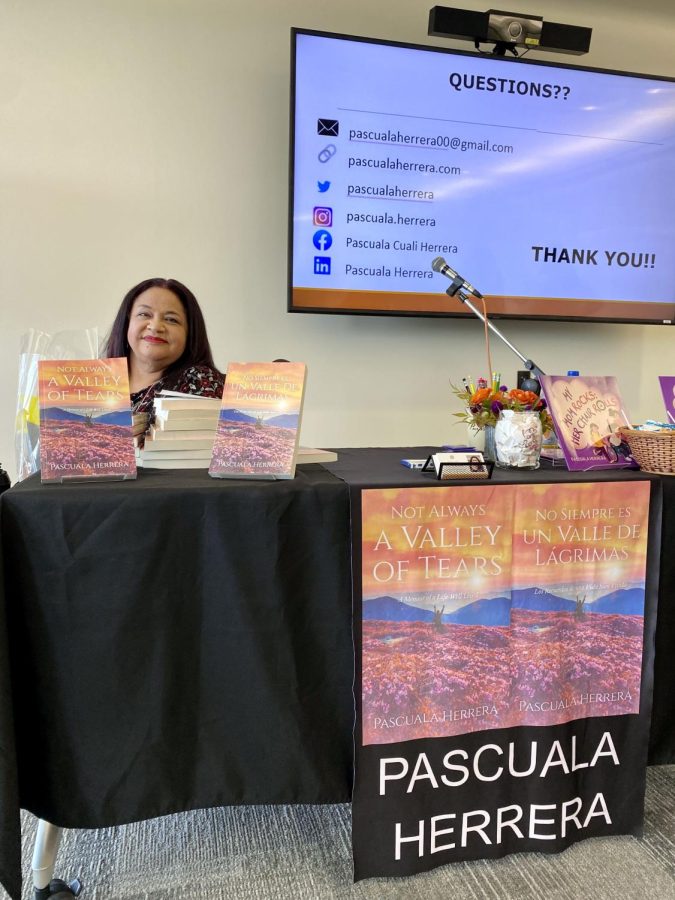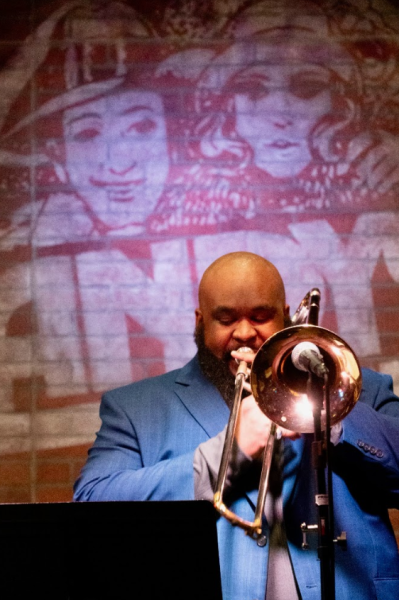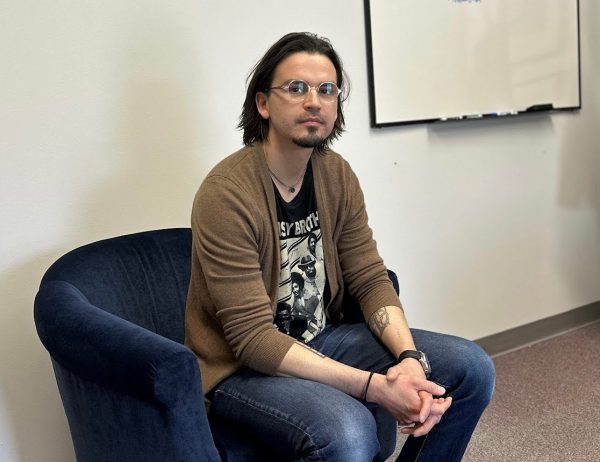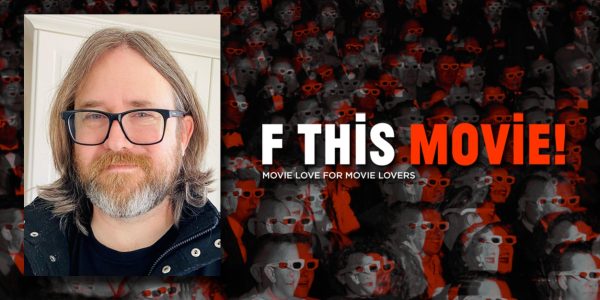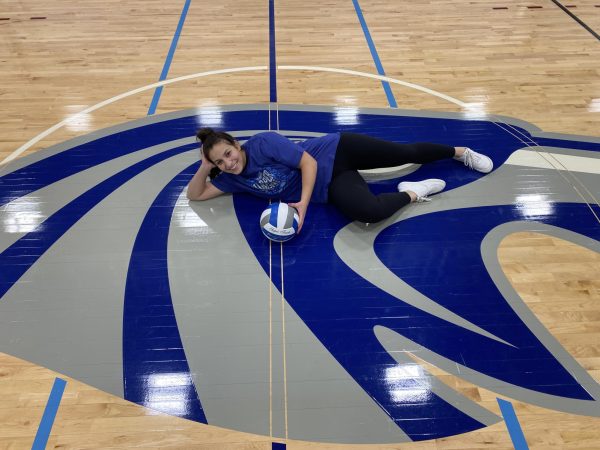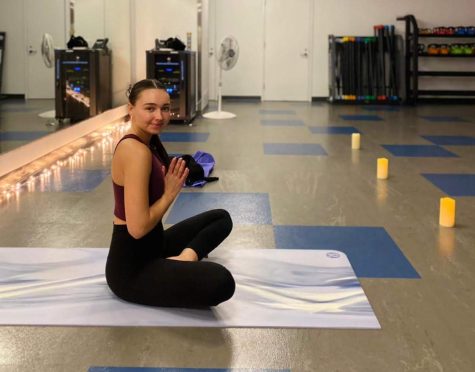Q&A: Celebrating life’s adversity with author Pascuala Herrera
“Not Always a Valley of Tears” author and former Harper professor Pascuala Herrera poses with her memoir after a presentation in the Cultural Center on October 13. Herrera is an advocate for LatinX communities and people with disabilities, as well as the co-founder of Educators 4 Equity and Justice. (Photo by Lydia Schultz)
Life is “not always a valley of tears” — just ask Pascuala Herrera, a self-published author who’s recent memoir is titled as such. This was just one piece of wisdom that Herrera, a female Mexican immigrant with a disability that requires her to use a wheelchair, imparted upon her audience who came to Harper’s Cultural Center on October 13 to learn about her book.
After working as a professor and accessibility specialist at Harper College for 30 years, Pascuala Herrera retired in 2020. She is now an award-winning author of two books, both of which have Spanish editions, and is an advocate for inclusion, equity and empowerment for all.
The accomplished author and educator spoke about her childhood in rural Mexico versus her experiences living in Humboldt Park in Chicago, as well as discrimination she has faced due to her use of a wheelchair and the educational barriers imposed upon the LatinX community. She also emphasized the many blessings throughout her life, such as her mother’s unwavering belief in her physical and life success, her career’s legacy at Harper where she co-founded Educators 4 Equity and Justice (a group which virtually educates faculty nationwide on developing more inclusive classrooms), and her husband and two daughters’ love and support.
Herrera’s enlightening, thought-provoking presentation of her life’s stories and lessons engaged audience members, who nodded, laughed and cried as she spoke.
I had the chance to do a brief interview with Herrera after her book-signing line of eager audience members cleared:
Q: Your memoir, “Not Always a Valley of Tears” is a beautiful reminder to look for the beauty in everyday life, and to find the light amongst darkness that may seem pervasive. Have you always been an optimist? Or is this a mindset that you had to work on to achieve?
A: I’m human. I have my moments. I realize that the situation doesn’t change, but my reaction and my approach may make me feel better.
Q: You are an influential advocate for the LatinX community as well as individuals with disabilities. Having spent 30 years as a previous faculty member at Harper, do you think that our school is doing enough for students of these communities? If not, what more do you think could be done?
There are a lot of caring professionals (at Harper). There’s always room for improvement and awareness, so the more exposure… the better it will be.
Q: You mentioned that the process of writing your memoir was therapeutic because you discovered feelings that you had suppressed. What do you want to tell students about mental health?
A: It’s important to express those feelings either through writing, or sharing with a friend or someone that you trust so those feelings can be exposed and handled. It’s very important not to ignore (them), because like anything else, the condition can get worse.
Q: You speak a lot on the importance of education and hard work. What advice would you give to a student who’s currently struggling or lost?
A: Have faith. Sometimes the darkest moments lead to the most beautiful life situations. I can think of multiple times that that has happened to me; when I went to law school and I didn’t finish, I thought I failed. But now that I have finished my career in education, I think, “Thank God.”
Q: During your presentation, you urged that the audience reconsider the way that we often assign labels to individuals who don’t personally identify with such labels. How can we break free from the labels that seem to define us?
A: You know, this country is very good at separating. It’s not to say that, ‘I’m not disabled.’ It’s that I don’t believe in all of the things that come with being disabled. For example, look up the word ‘disability’ in a dictionary or thesaurus. The words you’ll see are ‘unable,’ ‘incapable,’ ‘less-than’… all negative words. I refuse to look at myself that way.
Q: Although both National Hispanic Heritage Month and National Disability Employment Awareness Month are both ending soon, how can we continue celebrating these communities?
A: We should always celebrate people. It shouldn’t be one dedicated month. So the way to continue celebrating is to educate ourselves about other cultures and other races and to become more aware by participating in different activities that you wouldn’t normally do for exposure. Exposure is the best teacher.
~
This event was held in celebration of National Hispanic Heritage Month and National Disability Employment Awareness Month. For more ways to get involved, visit Harper’s website for the rest of the events this month.
To keep up with Herrera, make sure to check out her upcoming book that will be released soon, and you can follow her on social media, which can be found on her website at PascualaHerrera.com.
And as the seasons change and new hardships arise in your own life, remember Herrera’s concluding words of wisdom: “We are the writers of our own journey.”


